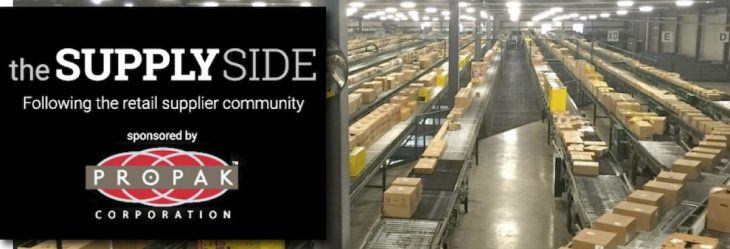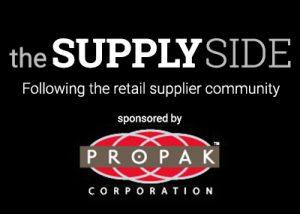The Supply Side: Skosay aims to bridge gap between brands, consumers
by December 12, 2016 1:13 pm 267 views

Editor’s note: The Supply Side section of Talk Business & Politics focuses on the companies, organizations, issues and individuals engaged in providing products and services to retailers. The Supply Side is managed by Talk Business & Politics and sponsored by Propak Logistics.
––––––––––––––––––––––
Consumers are often asked to try a new product via demo set up in Walmart U.S. stores, but the company behind the product often has no way of knowing who is trying the item and what they like or dislike about it.
Justin Urso and Jason Kohrig, founders of Fayetteville-based Skosay, saw an opportunity to change that problem and help consumer product companies do a better job of tracking who gets their samples and understanding their reactions. Skosay doesn’t hand out samples in stores, but it uses text messaging and has been able build a large database of consumers willing to sample items which are mailed to them. The consumers answer an ad in social media to participate in the sample promotion. The consumer sends a text to Skosay with a simple code and then they are asked to register as a VIP.
“In meeting with consumer package companies we kept hearing a common issue they have with new product launches and getting usable feedback once consumers have been able to try the product,” Urso said. “That wasn’t exactly the business we started out with but Skosay was easily able to pivot in this direction once we saw the demand was there from companies of all sizes.”
Skosay drives product sales by delivering a one-to-one experience between suppliers and their customers that allows them to build, engage and reward their customers continuously, he added.
“Messaging and specifically text messaging is on the front end of a renaissance of sorts,” Kohrig said. “As the lines blur between online and bricks and mortar the connective tissue is the mobile device. The full vision for Skosay tech is help make it as simple as possible for consumers to find and try new products or brands, deliver product samples at home to the hyper-interested consumers with a one touch ability to purchase online or provide real-time incentives to visit a store. To do this we are creating core competencies around real-time messaging technologies, mobile commerce and payments.”
BEFORE SKOSAY
Armed with three decades of combined experience working for some of the biggest names in the local supplier community, Urso and Kohrig ditched their steady-paycheck careers — Urso was a business analyst at Tyson Foods and Kohrig an engineer at Superior Industries — to roll the dice in a startup venture they called Skosay.

“We had several ideas and so we entered in hopes that one of them would stick,” Urso said.
Skosay came together quickly in the ARK Challenge incubation period and they were able to sign on Harps, Northwest Arkansas Regional Airport and Blue Cross Blue Shield in Little Rock the premise of helping companies find out what customers liked and disliked about the brands. But it wasn’t enough in terms of revenue.
“There were so many applications for that service in health and education, but Jason and I didn’t have any experience in those fields,” Urso said. “Our expertise is in CPG [consumer packaged goods] and in talking with these companies we saw a bigger problem they needed help solving.”
That’s when Skosay pivoted its mission to begin helping consumer brands with the problem around sampling new products and gaining usable feedback which could then be used for targeted marketing.
FLAGSHIP AND FUTURE SERVICE
When Skosay launched its flagship digital sampling service in 2015, it began with a simple problem: How to focus on taking the in-store demo into the digital age and being able to better understand consumer attitudes about a product.
Urso said the in-store model wasn’t effective because consumers were spending more time online and less time in stores. He said the company’s digital sampling program was put to the test last year working with a major protein bar manufacturer and a fragrance company. At the launch, Skosay placed an ad on social media for consumers who wanted to get a sample of a protein bar. In exchange, the startup was able to glean consumer feedback as well as contact info and other pertinent marketing demographics.
“Tens of thousands of consumers responded to the ad for the protein bar sample and we were able to expand the consumer database for future marketing purposes,” Urso said. “We did the same with a male fragrance product recently for Coty.”
Skosay recently offered a “Simply Sample” box that included several different products such as a new Ballpark Jerky item and other new product launches for various suppliers, which Urso said garnered relevant consumer insights for the brand manufacturers. That promotion ended Aug. 31.
Urso said in early 2017 the company will launch another service for suppliers that isn’t really conducive for product sampling. Instead of providing a sample, Skosay is exploring a possible financial incentive to the consumer.
“Think about barbecue sauce makers,” Urso explained. “It can be expensive to ship a whole bottle of sauce, but our new program is designed to help them with the same type of feedback.”
Urso is mum on program details until the launch.
ONGOING CHALLENGES
Urso and Kohrig have bootstrapped Skosay since 2014 and a recent effort to raise some local capital fell through, but the team remains committed to growing their business by essentially reinvesting all of the revenue generated over the past year.
“We have been able to bring on a developer and a business development/ sales manager in the past few months,” Urso said. “We felt it was important for Skosay to do its own technology development given we are essentially a technology startup. Bringing the tech development in-house has helped us tweak the service where needed and also quickly scale up the new service we will add in January.”
He admits having to reinvest virtually all of the revenue back into the business has meant a slower expansion given the sales cycle for Skosay’s flagship service is long. Urso said it can take nearly a year before a company decides to sign on. The Skosay team said they are hoping the added service will help to shorten that sales cycle some, given that it will expand their supplier base.
When asked what he might do different if starting Skosay today, Urso said one thing he would do sooner is bring the technology development in-house. He said being able to test and launch new services quickly is key for a startup looking to help suppliers with consumer marketing data. Kohrig agreed that having the ability to test faster would be the one thing he’d do differently. He said an interesting thing about the process of starting a technology-based company is there are many ways to succeed and more ways to fail.
The duo also said it would be nice to raise additional capital, but they are looking for partners in the process that can help them grow the business, not just someone to write a check for a stake in the company.
“We are not quite ready as a startup to solicit capital in larger markets, but we hope to get there in the next few months as we continue growing sales,” Urso said.
Kohrig said Skosay’s vision for now and the future is to provide technology-based services for supplies and retailers that help drive consumer conversations forward.
